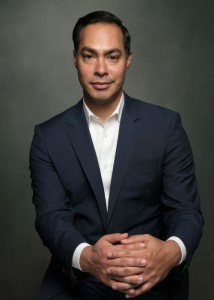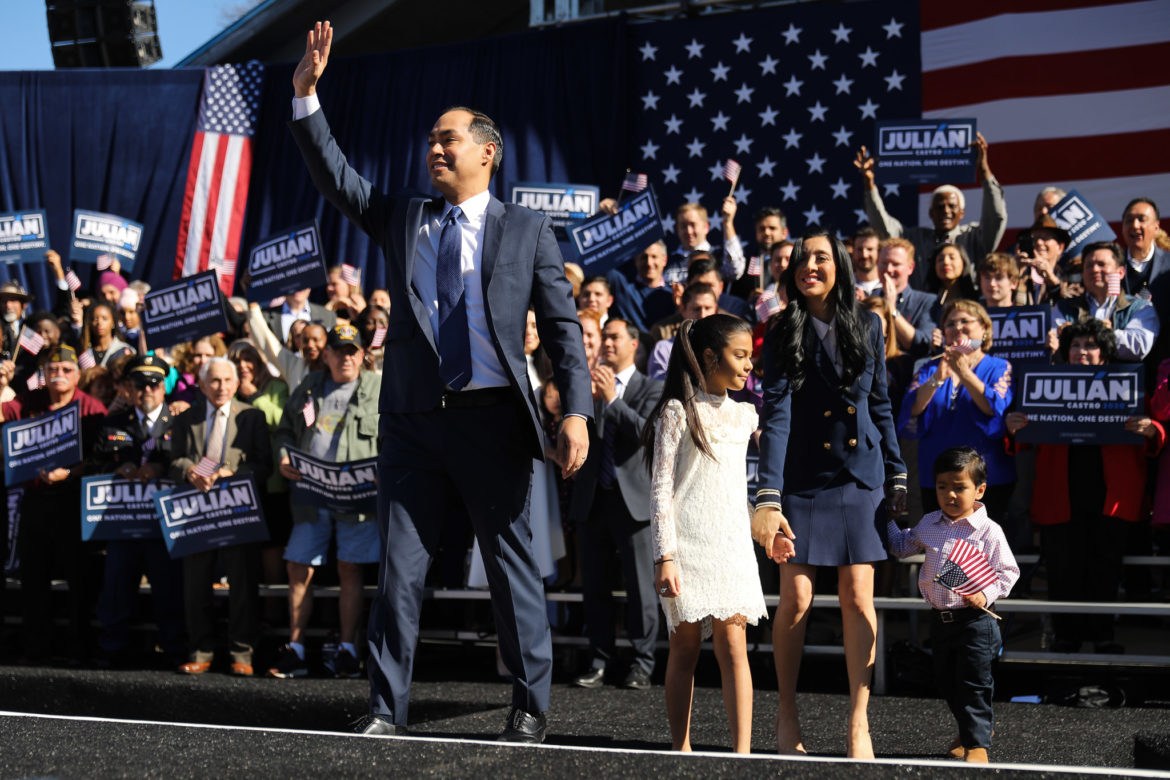Washington, D.C., May 16 – Julián Castro (D-TX), the former Mayor of San Antonio and Secretary of Housing and Urban Development (HUD) under the Obama Administration, has had a campaign that emphasizes the importance of putting “People First,” a clear jab at President Donald Trump’s “America First” doctrine. However, since Castro’s announcement in January, he has routinely polled in the single digits and only recently reached the requisite 65,000 individual donations to qualify for the debate stage next month. Thus, it is critical for Castro to expand his outreach to various voter demographics to prove his message of “People First.”
Specifically, one vital group of politically active swing voters are people with disabilities, who comprise 25 percent of our country’s adult population. Additionally, more than half of Americans have a loved one with a disability. And a survey shows that fully three-quarters of likely voters either have a disability themselves or have a family member or a close friend with disabilities.
As San Antonio’s City Council Member, Castro Advocated for Residents with Disabilities

Castro has a record of fighting for disability rights. His first position in politics was in 2001, when, at the age of 26, he became the youngest city council member on record for San Antonio, Texas. He was also the first council member to ever advocate for a ballot measure to permanently freeze San Antonio’s property taxes for seniors and residents with disabilities. At the time, the city already exempted the elderly from the first $65,000 of their home’s value and residents with disabilities from the first $12,500 of their home value. Some council members preferred raising those thresholds. However, Castro favored a blanket freeze that would prevent elderly residents or those with disabilities from ever paying any more property taxes than they did at the time.
Castro received harsh criticism for this proposal because the freeze benefitted more affluent residents in the city’s North Side, where property values were higher. Moreover, only four of the city’s ten districts managed to give property tax relief to more than half of its seniors. However, it greatly decreased the city’s biggest source of funding, making budget cuts inevitable. Yet, the city thrived, and when Castro left office, property taxes in San Antonio had not increased for more than twenty years.
As Secretary of HUD, Castro Fought for Accessible and Affordable Housing
Castro continued to fight for the right of Americans with disabilities, specifically their right to affordable accessible housing, as HUD Secretary. This issue is critical to the disability community, as most people with disabilities can only find accessible housing in areas of new or luxury construction, which are often extremely expensive.
In 2016, the National Disability Rights Network (NDRN) invited Castro to speak as a keynote speaker at their Protection and Advocacy (P&A) System and Client Assistance Program (CAP) Annual Conference due to his advocacy on accessible housing. Indeed, NDRN’s Executive Director, Curt Decker, introduced Castro by saying, “Secretary Castro has been a champion of safe, accessible and affordable housing in the community for people with disabilities.”
Castro Has Shown Mixed Results on Campaign Accessibility
For a presidential campaign to be fully inclusive of people with disabilities, it needs to meet the following requirements: (1) offer captioning with every video it shares or produces, (2) mention people with disabilities and their issues, (3) depict people with visible disabilities in its media, (4) reach out to the disability community, and (5) provide accessible campaign events and website.
Castro announced his presidential ambitions on January 12 in an announcement speech he delivered to a large crowd of supporters in his hometown of San Antonio. His speech is available on YouTube with automatic YouTube closed captioning. While the captioning had some minor mistakes and failed to caption sounds other than Castro’s speech, it was generally accurate. However, he mentioned various minority communities but failed to include people with disabilities in his speech. And, while the crowd was visibly diverse, no one with a visible disability was depicted.
Castro also prides himself on having made affordable accessible housing for people with disabilities a priority when he served as HUD Secretary. Under the “About” section of his presidential campaign website, he writes, “Together, my team and I made housing more accessible, lessened homelessness among our nation’s veterans and even offered internet access to families in public housing.” Other than Bernie Sanders, Castro is the only presidential candidate thus far this season to discuss an issue specific to the disability community on his website. In making this statement, he sends a clear message to the community that he recognizes the importance of disability issues and that “People First” means people with disabilities too.
Castro also sends this message every time he posts a video on social media, as nearly all of his videos include some form of accurate captioning. However, unfortunately, he rarely, if ever, posts content that relates to disability issues or depicts people with visible disabilities. And, his website also fails to include pictures of people with visible disabilities.
“Candidates for office ignore the disability community at their peril,” said former U.S. Representative and Dallas Mayor Steve Bartlett. Bartlett, who was a primary author of the Americans With Disabilities Act of 1990, is the chairman of RespectAbility. “People with disabilities are politically active swing voters, and candidates should take note of the important issues they care about.”
Castro’s campaign message of “People First” is a powerful one under the current political climate. People with disabilities and their loved ones, who make up the majority of the public, could very well gravitate toward such a message. But Castro must ensure that his campaign is disability inclusive to disseminate such a message fully. If he commits to discussing disability issues in his speeches, on his website and in his social media, and include media that depicts people with visible disabilities, he could potentially reach these critical swing voters and make history as the first Hispanic and Latino president of the United States.

[…] http://therespectabilityreport.org/2019/05/16/2020-presidential-election-julian-castro […]